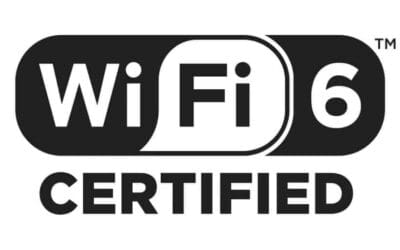Many companies have delayed a move from Windows mobile to Android because they’ve been busy trying to keep up with day-to-day operations, and/or worried about the cost, time and effort needed to move to a new mobile operating system.
For most, the clock is running out when it comes to using Windows OS. There are simply too many significant risks, costs, and potentially negative business impacts for companies to keep using Windows mobile.
Here’s why:
Microsoft Support Has Ended
Microsoft has long since ended its support for Windows Embedded Handheld 6.5 and other mobile operating systems, which many companies have still been using in their mobile operations. This means there are no security patches or OS support anymore, so if you’re running devices with this or some of Microsoft’s other Windows mobile operating systems, you could be left with no protection against the latest cyber threats.
Apps May Need to Be Re-Written
Furthermore, unless you’re able to upgrade directly from Windows Embedded Handheld version 8 to Windows 10 IoT for your mobile OS, if you stick with Windows, you’ll have to rewrite your mobile apps and databases, and you’ll have to reconfigure your networks. This is because there is no direct upgrade path between other older versions of Windows mobile operating systems and the latest Windows mobile OS. This makes it a time-consuming and expensive process to migrate to Windows 10 IoT.
On top of this, all leading manufacturers of enterprise-grade mobile devices have switched most of their hardware to Android-only, and the availability of Windows mobile devices is now extremely limited.
Given the waning popularity of Windows mobile, the problems triggered by Microsoft’s previous operating systems, and its decision to eliminate extended support for its newer OS options, the mobile industry has largely made the switch to Android.
Android offers several crucial benefits and improvements over Windows mobile, so even though migrating to Android requires a change in your OS, it pays to make the switch. It’s something that any company still using Windows mobile should be doing as soon as possible, and here are four key reasons why:
Intuitive, Easy-to-Use Touchscreen Workflows
The biggest difference with Android is its simplicity and how intuitive it is for workers to use. Android was built from the ground up to be as user-friendly as possible, with touchscreen interactions and workflows that are simply better than anything Microsoft can offer.
This is why Android is now the world’s most popular mobile OS, and its instant familiarity to workers—many of whom use it on their personal devices—makes the transition and training process fast and easy for most companies and their employees.
Easier Migration and App Development
Even though moving to Android will require a full migration from your previous Windows mobile OS, it’s a more flexible OS. This means that you can more easily find many industry apps online that are already available for Android, including mobile versions of most major warehouse management systems, ERPs, CRMs and more.
If you still need to migrate or develop your own apps, there are endless development resources available, with sample code and a massive global developer community that shares tips and insights online. Our team at MSM Solutions can also assist you with development and migration, and our Android mobile hardware partners at Zebra Technologies can also share many great resources to help.
Better Security with Easier Updates
Many companies are unaware that Android has arguably the world’s best record for device and data security, and its security is on par with Windows, especially with enterprise tools such as Zebra’s Android Mobility Extensions (Mx), which give IT admins complete control over every device, app, user, and connection.
It’s also very easy to keep your devices secure and updated with over-the-air updates that apply the latest security patches.
Lifetime OS Support
A big key to Android’s popularity in the enterprise space is that you can get OS and security updates for the lifetime of your device. Ultimately, you can get up to 10 years of guaranteed OS and security support, including five years beyond Google’s standard Android support period.
You can do this by investing in Zebra Android devices and choosing Zebra’s LifeGuard™ for Android ™ support option. This will keep your devices updated for many years ahead, which is a great alternative to Microsoft, which has ended extended support options for all of its operating systems.
How to Learn More and Get Started with Android Migration
If you haven’t already made the switch to Android, now is the time, and our mobile experts at MSM Solutions can help. Contact us now to learn more about Android, its potential benefits for your business, and how you can migrate to Android and boost your productivity, security and mobile efficiency at the same time.


